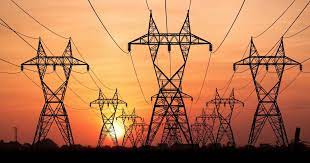The Electricity Company of Ghana (ECG), a government-owned power company, briefly disconnected power to the parliamentary complex on Thursday to force the legislative body to pay a debt of 23 million Ghanaian cedis (roughly $1.8 million).
Local news sites obtained footage of legislators being left in darkness within the parliamentary chamber following the power failure, prompting them to collectively shout “dumsor, dumsor,” which means blackout in Twi, the native language.
William Boateng, ECG’s communications director, told Reuters that the decision to suspend power was made after the legislature failed to react to warnings requesting payment.
This aggressive strategy emerges as Ghana’s power industry grapples with massive unpaid bills, resulting in an increase in electricity outages amid ongoing tensions between the government and power generation companies.
Boateng explained that disconnecting the parliament’s power supply is a common tactic used by ECG to encourage customers with outstanding bills to pay their bills.
He said, “Disconnections are for everybody; anyone who doesn’t pay and fails to make arrangements, the team will disconnect.
“They paid 13 million cedi ($1 million) and promised to pay the rest in a week, so our guys reconnected them.”
Meanwhile, a Ghanaian lawmaker, Edward Bawa, disclosed that a power failure led to a fellow parliamentarian and several staff members being caught in elevator lifts.
“The whole sector is suffering under debt and these are some of the consequences,” Bawa said.
The energy authority in Ghana stated in April 2023 that the country has an installed energy capacity of 5,454 MW, out of which 4,483 MW is operational.
Ghana’s thermal power generation is fueled largely by natural gas, but occasionally using light crude oil and diesel.
The West African country exports power to Togo, Benin, and Burkina Faso.
The government has been seeking to restructure the power sector and seal a debt deal with independent power producers (IPP) as it grapples with its worst economic crisis in a generation, characterised by double-digit inflation and ballooning public debt.



